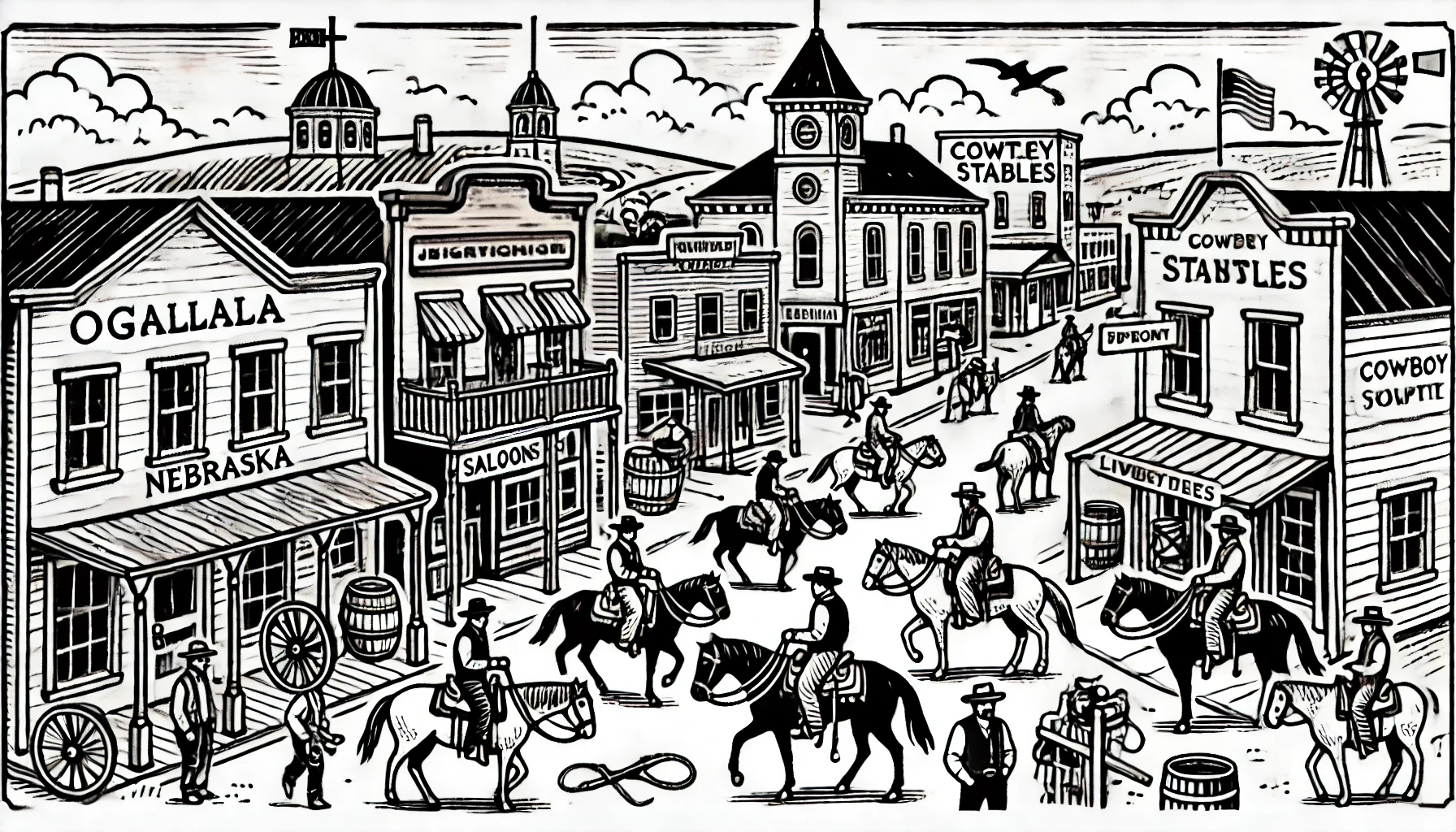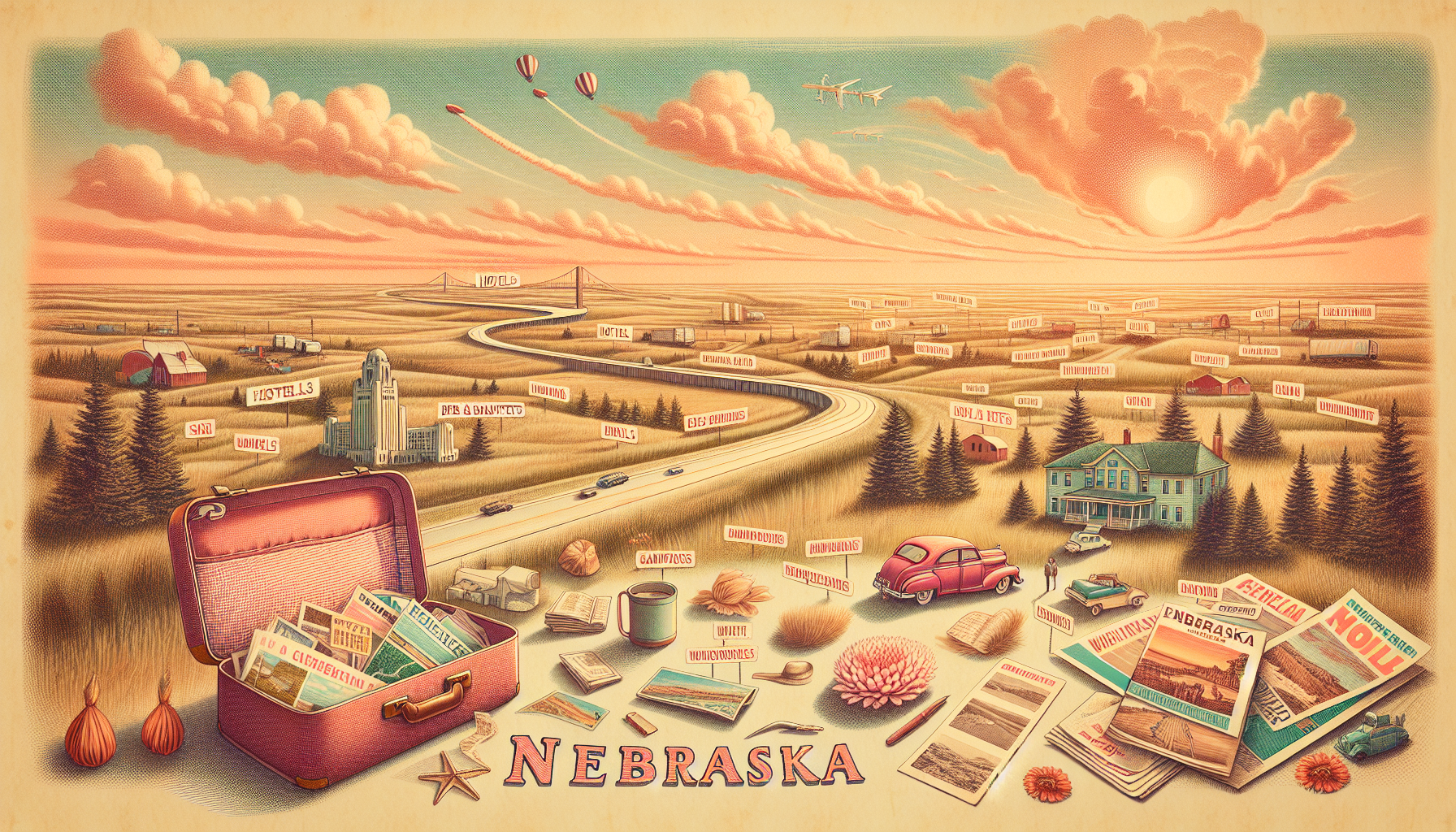Exploring Iowa German Heritage Sites

Traveling through the Midwest often involves navigating the cultural landscape of the region, and Nebraska is no exception. Just across the state line lies Iowa, a state rich in German heritage. This legacy is reflected in the numerous Iowa German heritage sites scattered throughout the state. These sites not only showcase Iowa's historical connection to Germany but also provide insight into the community's traditions, customs, and cultural identity.
In Northeast Iowa lies the charming town of Guttenberg, situated alongside the Mississippi River. This quaint town boasts a rich German heritage with several heritage sites, including the Guttenberg Historical Society Museum. Located in the heart of Guttenberg, the museum presents various exhibits illustrating the town's history and German influences, including immigration patterns, local customs, and architecture.
Aumann's Grove Heritage Center, located in nearby Sherrill, Iowa, offers another glimpse into Iowa's German heritage. This heritage center is situated in a mature grove of oak trees and showcases a range of historical structures, including the authentic reconstruction of a traditional German blacksmith shop. Visitors to the center can learn about various German crafts and traditions through live demonstrations by local artisans.
Further exploration of Iowa's German heritage sites leads us to the picturesque city of Dubuque. Here, one can find the Fenelon Place Elevator, which allows passengers to ascend Mount Fenelon and enjoy breathtaking views of the city and surrounding landscape. While not exclusively a German heritage site, the elevator does underscore the complex cultural identity of Dubuque, a city significantly influenced by the German diaspora.
Fort Atkinson State Preserve, a site nestled in Winneshiek County, deserves particular attention. It tells the history of Iowa's lead mining past, focusing on German-American heritage. Visitors may participate in interpretive programs highlighting the historical, cultural and social aspects of mining.
German influences in Iowa extend far beyond architecture and tangible artifacts. During the annual GermanFest, which takes place in Guttenberg, the streets become bustling with sights and sounds illustrating Iowa's German roots. There is traditional German music, cultural demonstrations, German-style dining options and entertaining festivities that honor the culture and customs of the ancestral homeland of Germany.
Although cultural distinctions created visible contrasts within Iowa communities, one aspect undoubtedly stands out: it's resilient history and distinct influence that survives through different German heritage sites scattered across Iowa.
Ultimately, delving into the depths of these Iowa German heritage sites as you travel through Nebraska delivers a meaningful examination of multilayered traditions inherent to our collective history.
In Northeast Iowa lies the charming town of Guttenberg, situated alongside the Mississippi River. This quaint town boasts a rich German heritage with several heritage sites, including the Guttenberg Historical Society Museum. Located in the heart of Guttenberg, the museum presents various exhibits illustrating the town's history and German influences, including immigration patterns, local customs, and architecture.
Aumann's Grove Heritage Center, located in nearby Sherrill, Iowa, offers another glimpse into Iowa's German heritage. This heritage center is situated in a mature grove of oak trees and showcases a range of historical structures, including the authentic reconstruction of a traditional German blacksmith shop. Visitors to the center can learn about various German crafts and traditions through live demonstrations by local artisans.
Further exploration of Iowa's German heritage sites leads us to the picturesque city of Dubuque. Here, one can find the Fenelon Place Elevator, which allows passengers to ascend Mount Fenelon and enjoy breathtaking views of the city and surrounding landscape. While not exclusively a German heritage site, the elevator does underscore the complex cultural identity of Dubuque, a city significantly influenced by the German diaspora.
Fort Atkinson State Preserve, a site nestled in Winneshiek County, deserves particular attention. It tells the history of Iowa's lead mining past, focusing on German-American heritage. Visitors may participate in interpretive programs highlighting the historical, cultural and social aspects of mining.
German influences in Iowa extend far beyond architecture and tangible artifacts. During the annual GermanFest, which takes place in Guttenberg, the streets become bustling with sights and sounds illustrating Iowa's German roots. There is traditional German music, cultural demonstrations, German-style dining options and entertaining festivities that honor the culture and customs of the ancestral homeland of Germany.
Although cultural distinctions created visible contrasts within Iowa communities, one aspect undoubtedly stands out: it's resilient history and distinct influence that survives through different German heritage sites scattered across Iowa.
Ultimately, delving into the depths of these Iowa German heritage sites as you travel through Nebraska delivers a meaningful examination of multilayered traditions inherent to our collective history.
